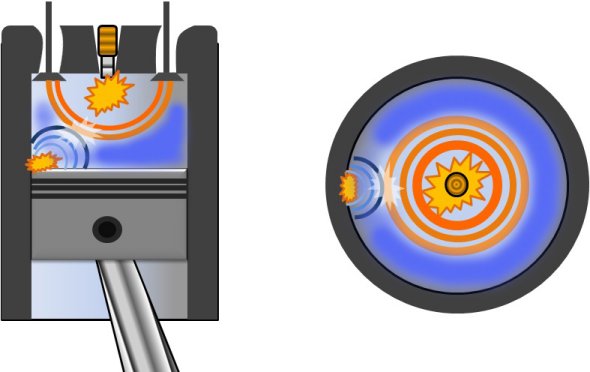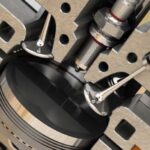Detonation or knocking in I.C. Engines – The loud pulsating noise heard within the engine cylinder of an I.C. engine is known as detonation (also called knocking or inking). It is caused due to the propagation of a high speed pressure wave created by the auto-ignition of end portion of unburnt fuel. The blow of this pressure wave may be of sufficient strength to break the piston. Thus, the detonation is harmful to the engine and must be avoided. The following are certain factors which causes detonation:
1. The shape of the combustion chamber,
2. The relative position of the sparking plugs in case of petrol engines,
3. The chemical nature of the fuel,
4. The initial temperature and pressure of the fuel, and
5. The rate of combustion of that portion of the fuel which is the first to ignite. This portion of the fuel in heating up, compresses the remaining unburnt fuel, thus producing the conditions for auto-ignition to occur.
The detonation in petrol engines can be suppressed or reduced by the addition of a small amount of lead ethide or ethyl fluid to the fuel. This is called doping.
The following are the chief effects due to detonation:
1. A loud pulsating noise which may be accompanied by a vibration of the engine.
2. An increase in the heat lost to the surface of the combustion chamber.
3. An increase in carbon deposits.


